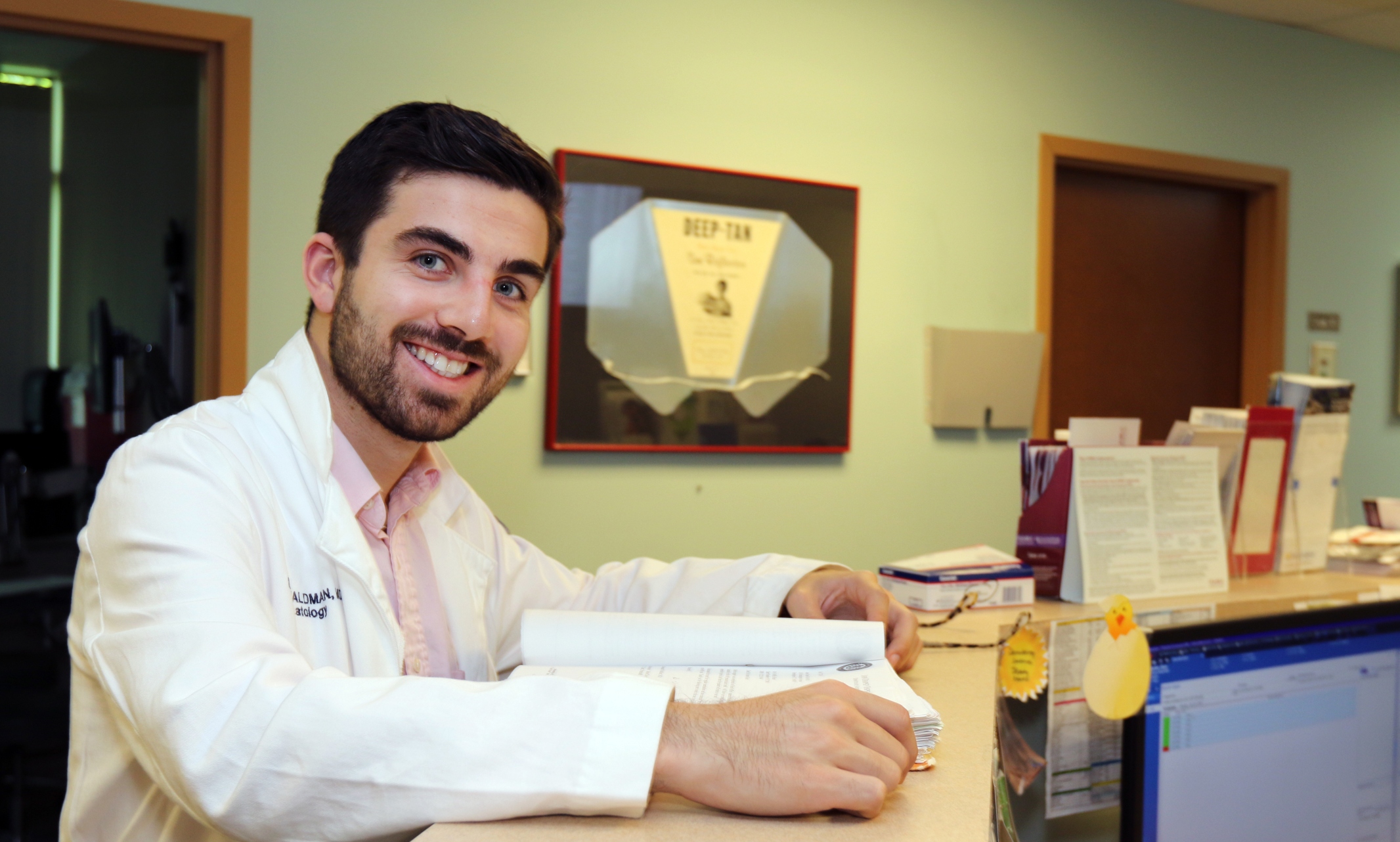After graduating from UMKC’s six-year B.A./M.D. program and becoming a dermatologist, Reid Waldman (B.L.A. ’16, M.D. ’17) noticed a lack of kid-friendly wart-treatment options. So he worked to turn that gap in the market into a new business venture that has rapidly taken off.
Shortly after graduating from the UMKC School of Medicine, Waldman competed in a Dermatology Hackathon — a competition designed to spark new ideas and industry collaborations to improve standards of care and treatment for skin conditions.
“The team came together during the competition looking to research the problem of childhood wart treatments being painful, scary and ineffective,” Waldman says.
During that competition, the idea for VeraDermics was born. The company makes kid-friendly patches to treat warts in children.
An estimated 10-to-20% of children develop common skin warts, but existing treatment options were not “kid-friendly,” as they were largely time-consuming and expensive, Waldman explained.
“We’re dermatologists developing drugs for dermatology,” Waldman says. “Everyone on our core management team is a dermatologist. We use our end-user knowledge as physicians who actually use the products that we develop to better understand what doctors and patients want out of new therapeutics. It's a very novel approach to drug development, which is otherwise often done by people who haven’t spent appreciable time in the clinical arena.”
To date, Waldman and the VeraDermics team have raised more than $22 million to launch the company and bring the product to market. Currently all of the company’s products are still in the pre-clinical phase, either undergoing formulation work, validation in the lab or ongoing process development. Waldman says in drug development it’s important to ensure every batch of a medication is identical, so his teams are investing heavily to ensure they get it right.
“It's amazing to be at the stage we’re at now, because all of the corporate planning takes years, and we've been working on this for so long,” says Waldman. “There are many milestones that at one point seemed so far away. It’s really mind blowing the closer we get. And I think this is going to be an especially exciting year for us."
Waldman says through building his company from the ground up, he realized the strength and reach of his UMKC alumni network. From donations to well-wishes and even business advice, he’s benefitted from the connections he built while enrolled at UMKC.
“The six-year B.A./M.D. program at UMKC is the cornerstone of why I'm interested in drug development,” Waldman says. “My UMKC medical training and then the medical training I had postgraduation have really helped me recognize certain areas of unmet need within medicine and specifically within my field of dermatology. Through my medical training I can appreciate some of these more niche areas of unmet need that are otherwise not necessarily a focus of larger pharmaceutical companies.”
“It's amazing to be at the stage we’re at now, because all of the corporate planning takes years, and we've been working on this for so long.” —
He didn’t have to look far to start building connections with other UMKC alumni.
Waldman comes from a UMKC legacy family. In fact, the family’s Roo tradition began in 1929, when Reid’s grandfather, David Waldman (J.D. ’32), became the first graduate of three generations of Waldmans to be admitted to the Kansas City School of Law (now the UMKC School of Law).
Reid’s father, uncle and three siblings are all UMKC graduates. Waldman’s family received the UMKC Legacy Award at the 2014 UMKC Alumni Awards.
The UMKC School of Medicine is currently celebrating its 50th anniversary. Waldman says he’s proud to be a product of such an incredible and unique institution.
“I think it's amazing,” Waldman says. “My dad was in one of the early classes at the School of Medicine and then I was a graduate in 2017. In many ways, I think the medical school has changed quite a bit between the time my dad attended and when I graduated, and I know it has probably changed since I left. But in many ways the great education and uniqueness of the program remain.”

